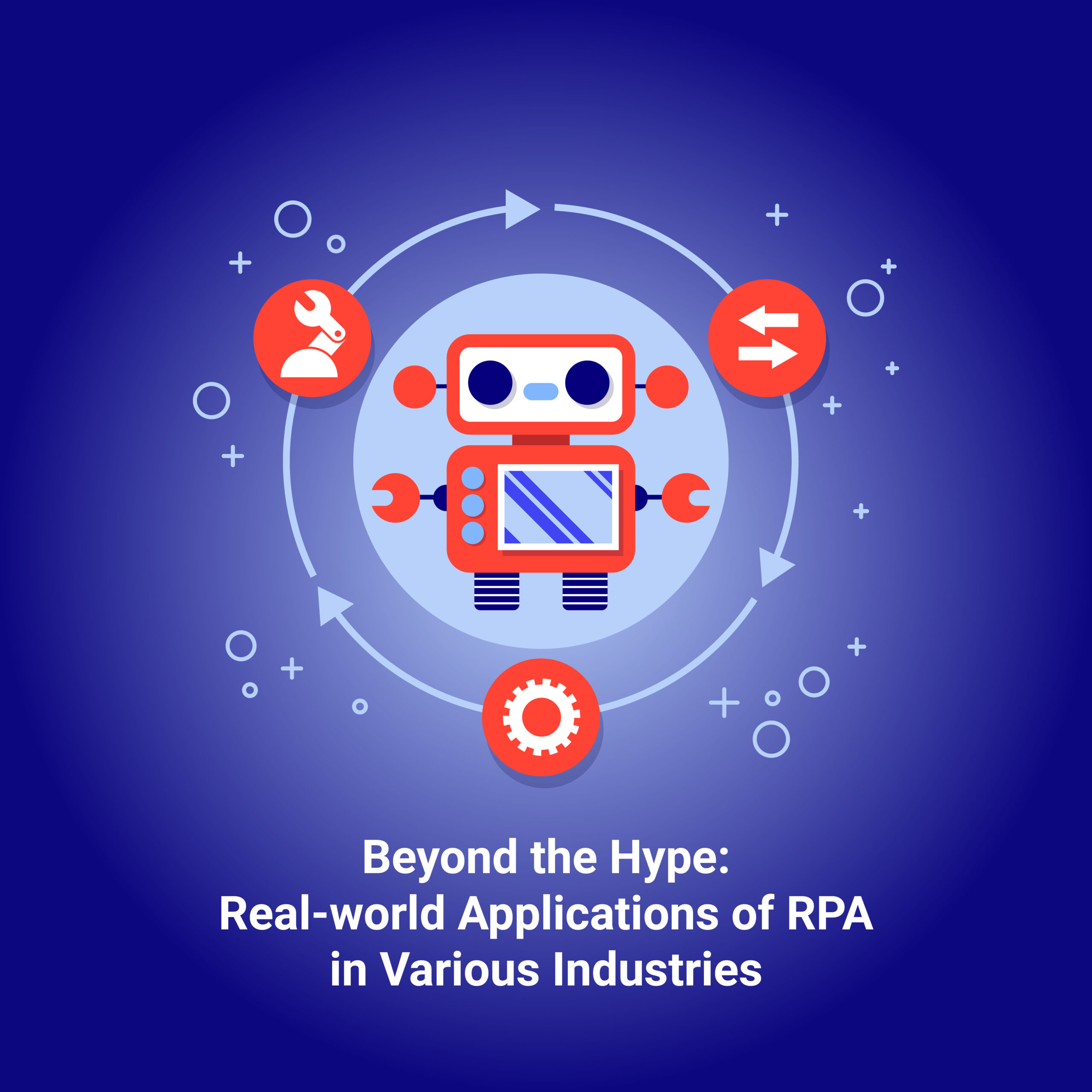In today’s dynamic company surroundings, Robotic Process Automation (RPA) is a game-changer that is redefining conventional methods throughout industries. Beneath the trendy terms, real advantages exist, such as improved customer experiences and simpler processes. Let’s investigate the practical uses of RPA in a variety of industries, revealing both its revolutionary potential and emerging trends.
Unleashing Efficiency and Productivity Across Industries
Banking and Finance:
RPA transforms back-office operations in the banking and financial industry by automating fraud detection, compliance reporting, and data entry. RPA is not merely a theoretical idea; practical applications have demonstrated its value. Case studies demonstrate how RPA increases efficiency and reduces costs by strengthening security protocols and speeding up loan approvals. Global banks have reported notable decreases in loan application processing times, resulting in higher client satisfaction and income. These achievements provide evidence of RPA’s revolutionary potential.
Healthcare:
In the healthcare industry, RPA automates medical diagnostics, billing, and appointment scheduling, which eliminates administrative burdens. Healthcare practitioners can now give more individualised care and faster diagnoses thanks to the synergy between RPA and AI, which improves patient outcomes. Case examples show how RPA-enabled systems can analyse patient data on a broad scale to identify trends and foresee potential health risks. This allows for more effective population health management and preventive interventions.
Manufacturing:
Manufacturing production processes, including quality control and inventory management, are optimised using RPA. RPA promotes a culture of continuous improvement and cost savings by ensuring predictive maintenance and minimising downtime through integration with IoT devices. For instance, RPA systems have been used by automakers to automate assembly line processes, increasing production output and enhancing product quality.
Retail and E-commerce:
Retailers can maintain ideal stock levels and customise consumer interactions by using RPA, which elevates supply chain management to new heights in the retail and e-commerce industries. Virtual assistants and chatbots improve customer service and increase customer happiness and loyalty. Prominent e-commerce platforms use Robotic Process Automation (RPA) to automate order fulfilment and processing, minimising order mistakes and shipment delays while offering real-time order updates and customised suggestions based on browsing and past purchases to customers.
Navigating Implementation Challenges and Compliance
Effective RPA deployment requires people as much as technology. Stakeholder participation and strategic planning are key factors. Companies need to assess their existing procedures in-depth in order to identify those that are good candidates for automation. Initiatives then need to be ranked in order of potential return on investment. Moreover, fostering a creative and collaborative culture is essential to quickening the company’s adoption of RPA. Your contribution is valued and your role in this process is crucial.
In all industries, compliance is still very important. RPA solutions need to follow data security guidelines and legal requirements in order to reduce risks and guarantee smooth system integration. For example, HIPAA rules must be followed by RPA systems in the healthcare industry to ensure patient privacy and confidentiality, while PCI DSS and GDPR standards must be followed in the finance industry to safeguard sensitive financial data.
Embracing Future Trends
As RPA develops, new automation frontiers are opened up by its integration with cutting-edge technology like artificial intelligence (AI). While cognitive automation raises the bar for RPA solutions, machine learning algorithms improve the capacity for making decisions. Businesses are investigating how predictive modelling and advanced analytics can be used to expect customer behaviour and marketplace developments, fostering innovation and agility in the digital age. It is expected that RPA will continue to increase, supplying the opportunity to automate ever-extra complex duties and enabling even more degrees of operational engagement and efficiency.
Beyond conventional limits, RPA’s future includes customer service, logistics, and other areas. This is about ushering in a new technology of enterprise, no longer simply automation. Organisations can acquire operational excellence and aggressive advantage through the use of shrewd automation, which makes independent operations and predictive analytics feasible. Organisations can seize clean possibilities for innovation and expansion in the digital era by adopting robotic process automation (RPA) and becoming aware of rising trends. Destiny is fascinating and complete with opportunities.
Conclusion
Automation of business processes is a dynamic field that can be transformed by Robotic Process Automation. Its practical uses cut costs and increase productivity across a range of industries. By utilising RPA and adopting cutting-edge technologies, businesses may improve customer experiences, expedite processes, and open up new growth and innovation opportunities. The future of work will be shaped by RPA’s revolutionary impact as it develops, allowing companies to prosper in an increasingly digital environment.









0 Comments